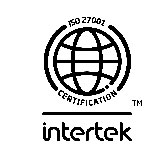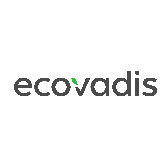- India:
 +91 9100090012
+91 9100090012 - International:
 +91 9883305050
+91 9883305050
- Home
- >
- Specialized Courses
- >
- PCAP – Certified Associate in Python Programming
Available Training Rooms

PRIVATE BATCH

PUBLIC PROGRAM

ON DEMAND

BLENDED
Course Details
- Syllabus
Section 1: Modules and Packages (12%)
Objectives covered by the block (6 exam items)
PCAP-31-03 1.1 – Import and use modules and packages
- import variants: import, from import, import as, import *
- advanced qualifying for nested modules
- the dir() function
- the sys.path variable
PCAP-31-03 1.2 – Perform evaluations using the math module
- functions: ceil(), floor(), trunc(), factorial(), hypot(), sqrt()
PCAP-31-03 1.3 – Generate random values using the random module
- functions: random(), seed(), choice(), sample()
PCAP-31-03 1.4 – Discover host platform properties using the platform module
- functions: platform(), machine(), processor(), system(), version(), python_implementation(), python_version_tuple()
PCAP-31-03 1.5 – Create and use user-defined modules and packages
- idea and rationale;
- the __pycache__ directory
- the __name__ variable
- public and private variables
- the __init__.py file
- searching for/through modules/packages
- nested packages vs. directory trees
Section 2: Exceptions (14%)
Objectives covered by the block (5 exam items)
PCAP-31-03 2.1 – Handle errors using Python-defined exceptions
- except, except:-except, except:-else:, except (e1, e2)
- the hierarchy of exceptions
- raise, raise ex
- assert
- event classes
- except E as e
- the arg property
PCAP-31-02 2.2 – Extend the Python exceptions hierarchy with self-defined exceptions
- self-defined exceptions
- defining and using self-defined exceptions
Section 3: Strings (18%)
Objectives covered by the block (8 exam items)
PCAP-31-03 3.1 – Understand machine representation of characters
- encoding standards: ASCII, UNICODE, UTF-8, code points, escape sequences
PCAP-31-03 3.2 – Operate on strings
- functions: ord(), chr()
- indexing, slicing, immutability
- iterating through strings, concatenating, multiplying, comparing (against strings and numbers)
- operators: in, not in
PCAP-31-03 3.3 – Employ built-in string methods
- methods: .isxxx(), .join(), .split(), .sort(), sorted(), .index(), .find(), .rfind()
Section 4: Object-Oriented Programming (34%)
Objectives covered by the block (12 exam items)
PCAP-31-03 4.1 – Understand the Object-Oriented approach
- ideas and notions: class, object, property, method, encapsulation, inheritance, superclass, subclass, identifying class components
PCEP-31-03 4.2 – Employ class and object properties
- instance vs. class variables: declarations and initializations
- the __dict__ property (objects vs. classes)
- private components (instances vs. classes)
- name mangling
PCAP-31-03 4.3 – Equip a class with methods
- declaring and using methods
- the self parameter
PCAP-31-03 4.4 – Discover the class structure
- introspection and the hasattr() function (objects vs classes)
- properties: __name__, __module__ , __bases__
PCAP-31-03 4.5 – Build a class hierarchy using inheritance
- single and multiple inheritance
- the isinstance() function
- overriding
- operators:
- not is, is
- polymorphism
- overriding the __str__() method
- diamonds
PCAP-31-03 4.6 – Construct and initialize objects
- declaring and invoking constructors
Section 5: Miscellaneous (22%)
Scope: List Comprehensions, Lambdas, Closures, and I/O Operations
Objectives covered by the block (9 exam items)
PCAP-31-03 5.1 – Build complex lists using list comprehension
- list comprehensions: the if operator, nested comprehensions
PCAP-31-03 5.2 – Embed lambda functions into the code
- lambdas: defining and using lambdas
- self-defined functions taking lambdas as arguments
- functions: map(), filter()
PCAP-31-03 5.3 – Define and use closures
- closures: meaning and rationale
- defining and using closures
PCAP-31-03 5.4 – Understand basic Input/Output terminology
- I/O modes
- predefined streams
- handles vs. streams
- text vs. binary modes
PCAP-31-03 5.5 – Perform Input/Output operations
- the open() function
- the errno variable and its values
- functions: close(), .read(), .write(), .readline(), readlines()
- using bytearray as input/output buffer
Audience

Administrators
Public Program Schedule
The highest standard, The happiest learners
Our Enterprise Clients

FAQ
Other Related Courses
- Related courses will be updated soon...









































































